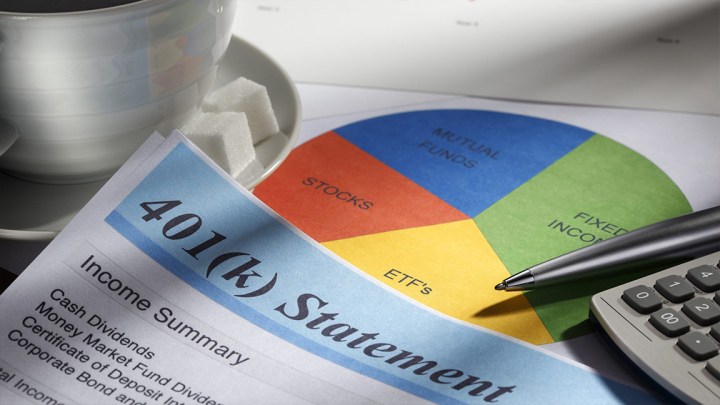
Is climate change pushing more investors to ESG funds?

What’s called ESG investing — considering environmental, social or corporate governance factors in building a portfolio — has been in the headlines a lot lately. ESG investing is how many investors apply their personal values to selecting stocks and stock funds and engaging with the companies they own part of. The principles can also be applied to bonds and commodities.
But the ESG investing trend has stirred a political battle. There’s also been scrutiny from regulators to make sure investment managers aren’t just slapping the ESG label on something without following through on those commitments. And there’s been renewed focus on ESG investing given the urgency of changing climate conditions and the extreme weather events we are seeing around the world.
That makes now a good time to check in on where ESG investing stands. Rich Nuzum, global chief investment strategist at the consulting firm Mercer, discussed it with “Marketplace Morning Report” host Sabri Ben-Achour. The following is an edited transcript of their conversation.
Sabri Ben-Achour: How have ESG funds performed compared to the rest of the stock market so far this year?
Rich Nuzum: We ran an analysis, year to date, of the 10 largest ESG-themed funds as identified by Statista.com, and only 3 of the 10 had outperformed the S&P 500. And two of them have actually delivered a negative year-to-date return, even though the S&P 500 is up double digits.
Ben-Achour: That’s interesting, because I recall just a few years ago, people promoting ESG funds were pointing out that they were outperforming just about everything.
Nuzum: During COVID in particular when oil prices dropped into [the $10 or $20 per barrel range], in general ESG-themed funds did well. That reversed in 2022, when Russia invaded Ukraine, oil prices went past $100 a barrel and a lot of ESG investors were surprised that they substantially underperformed the market due to being light in traditional energy.
Ben-Achour: Central to ESG funds are values, and that has made them controversial, politicized even. They’ve been the target of Republican lawmakers who claim the funds politicize investments instead of worrying about the bottom line. What’s your perspective on that?
Nuzum: So I have a contrarian view that’s not popular with either end of the political spectrum, which is that the conversation we’re having now in the headlines and with politicians about ESG, it’s actually the same conversation we’ve been having within investment committee rooms on the institutional side for more than 30 years. And, at the end of the day, it’s constructive because it’s educating investors that ESG is not one size fits all. There are things to look at here. You need to understand what’s in the package and your own beliefs about risk-return drivers or the impact that you want to have in the world, or values, will drive you to a different answer.
Even within the most passionate, sophisticated ESG investors, there are big differences in belief. If we just take climate change and carbon emissions, there’s a part of the ESG-committed community that believes in net zero and that portfolios should have a net-zero commitment and go to net zero. There’s another part of the ESG community that is saying, “Actually, solving your portfolio, taking your portfolio to net zero, we could do that tomorrow. That doesn’t change the world very much. If you want to change the world, you need to put your money into clean tech and green tech and green infrastructure investments. And if you don’t do that, we won’t solve climate change.”
Ben-Achour: Given the natural disaster after natural disaster that we have seen this year, whether it’s wildfires, extreme heat, flooding, hurricanes — “E” in “ESG” is environmental factors — is there any sense that the urgency of this severe weather is driving more people to consider ESG funds right now?
Nuzum: Definitely the widespread coverage of major environmental disasters, it is causing both institutional and retail investors to think about more carefully, “What do we believe will drive security prices?” Or, “What impact do we want to have in the world? And can we make money from having that impact?” Or, “Are there just values we want to reflect in our portfolio? Because we don’t want to make money off things that are actually hurting the planet, and we’d rather make our money off things that are helping.”
There’s a lot happening in the world. Through it all, Marketplace is here for you.
You rely on Marketplace to break down the world’s events and tell you how it affects you in a fact-based, approachable way. We rely on your financial support to keep making that possible.
Your donation today powers the independent journalism that you rely on. For just $5/month, you can help sustain Marketplace so we can keep reporting on the things that matter to you.

















